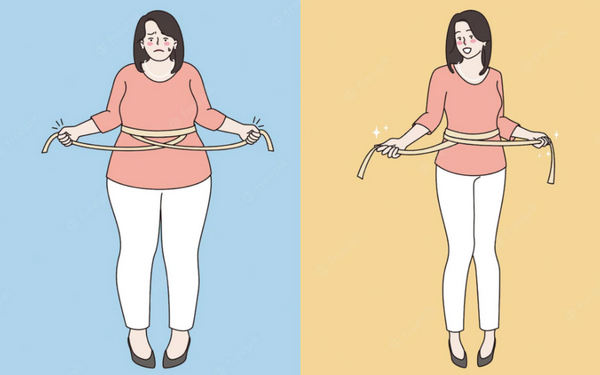
Mastering Self-Control: How to Stop Eating All the Time and Achieve Sustainable Weight Loss
In today's society, where an abundance of food is readily available, maintaining a healthy weight can be a challenging endeavor. The struggle to control excessive eating habits while aiming for weight loss is a common challenge faced by many individuals. In this article, we will explore effective strategies to overcome the urge to eat constantly and achieve sustainable weight loss. Additionally, we will debunk common misconceptions surrounding extreme approaches like fasting for days or severely restricting calorie intake.
Understanding the Root Causes of Overeating:
Before diving into strategies for curbing excessive eating, it is essential to address the underlying factors that contribute to the behavior. Emotional eating, stress, boredom, and a lack of mindful eating habits can all play a significant role in overconsumption. By identifying and addressing these triggers, you can develop a healthier relationship with food.
Mindful Eating:
One of the most powerful tools for reducing excessive eating is practicing mindful eating. This involves being fully present and engaged while consuming food, paying attention to hunger and fullness cues, and savoring each bite. By slowing down and focusing on the sensory experience of eating, you can enhance satisfaction, prevent overeating, and develop a more positive relationship with food.
Recognizing Hunger vs. Emotional Cravings:
Learning to differentiate between physical hunger and emotional cravings is crucial for conquering overeating. True hunger emerges gradually and is primarily driven by the body's need for nourishment, while emotional cravings tend to be sudden, intense, and specific to certain comfort foods. By pausing to assess your cravings and understanding their underlying cause, you can choose healthier coping mechanisms and prevent unnecessary calorie intake.
Creating a Balanced and Nourishing Diet:
Adopting a balanced, nutritious diet is pivotal for weight loss and overall well-being. Focus on consuming whole, unprocessed foods such as fruits, vegetables, lean proteins, whole grains, and healthy fats. These nutrient-dense choices provide satiety and essential vitamins and minerals while curbing the desire to eat excessively due to nutrient deficiencies.
Portion Control:
Controlling portion sizes is a critical aspect of managing calorie intake. Invest in smaller plates and bowls to visually trick your brain into perceiving larger servings. Practice mindful portioning by using measuring cups or estimating portion sizes based on familiar objects. Over time, this practice will help you develop a better understanding of appropriate serving sizes and prevent mindless overeating.
The Pitfalls of Extreme Approaches:
While it may be tempting to resort to extreme measures like fasting for days or severely restricting calorie intake, these practices are neither safe nor sustainable for long-term weight loss. Rapid weight loss achieved through such methods is often short-lived and can lead to muscle loss, nutrient deficiencies, and metabolic slowdown. Instead, focus on gradual, healthy weight loss by creating a sustainable calorie deficit through a balanced diet and regular physical activity.
Overcoming the urge to eat all the time and achieving sustainable weight loss requires patience, self-awareness, and the implementation of healthy habits. By practicing mindful eating, recognizing hunger vs. emotional cravings, adopting a balanced diet, controlling portions, and avoiding extreme approaches, you can break free from the cycle of constant eating and embark on a successful weight loss journey. Remember, the key lies in embracing a healthier relationship with food and nourishing your body while respecting its signals and needs.











